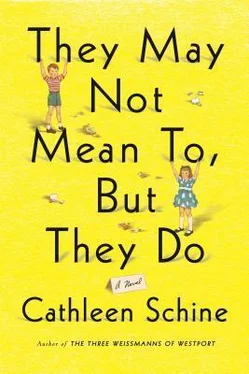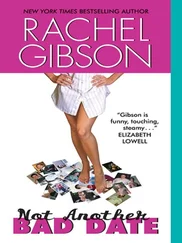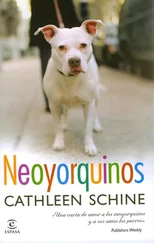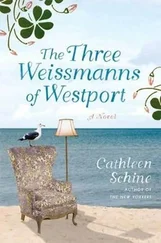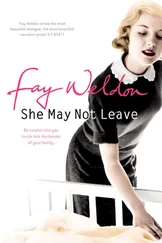“Why do you like him?” Cora asked. “He’s scary. And he’s dead.”
“So?”
“So he’s scary and he’s dead.”
But Ruby only shrugged and gazed fondly at the old man. He had sent his children to New York for a better life, six of them, holding only one back to take care of him and his wife in their old age. That daughter had died of cholera at sixteen. Tragic, Grandma Joy told her. Ruby thought, It served him right , but she said nothing.
“Is the turkey cooked or not?” Joy said, back in the kitchen. “I don’t understand.”
“Mom, you did plenty. Just sit down and relax. Coco and I can do this part.”
Joy had helped set up the extra table and the folding chairs, she’d helped Molly get the good dishes down, the good silverware, all the linens tucked away in boxes lined with tissue paper. That, plus everything she’d done to get Aaron ready — she was tired. In the living room, she watched as Aaron trudged in behind his walker. The girls looked up from the box of photographs.
“Do you want to look at your ancestors?” Ruby asked him.
“I’m too old to have ancestors.”
“That’s silly, Grandpa.”
“I’m too silly to have ancestors,” he said. He threw two kisses at the children. “Catch!” he said, and they both jumped and raised a hand, as if they were catching a butterfly. “Good,” he said. “Sometimes they get away.”
Joy helped him sit on his chair. He threw her a kiss, too. “Tough to be an old Jew,” he said.
“I’m Jewish,” Cora said.
Her sister rolled her eyes.
Cora showed Joy a photo of a man wearing a woman’s bathing suit.
“That’s my father,” Joy said.
“Why did he wear a girl’s bathing suit?”
“All the men did.”
“There’s a girl in my class who used to be a boy. But I’ve never seen her in a bathing suit.”
“Dear god.”
“Sometimes people get born in the wrong bodies,” Ruby explained to her grandmother.
Joy checked to see if Aaron had been following this, but he appeared to be, mercifully, asleep.
After a while, Cora began her ritual search for spare change, running her small fingers beneath the seat cushions of the sofa. Mostly she encountered grit, but she did come across a few bobby pins. Beneath the cushion of a chair, she discovered a clear plastic bean with a tiny wire. She was so disgusted when she realized that it was her grandfather’s hearing aid that she put it back. She moved onto the floor and lifted the sofa’s skirt. There, among the dust balls, she saw a ballpoint pen she could not reach.
She moved on to the ashtrays.
“What are ashtrays for?” she said.
Ruby looked at her incredulously. “For ashes.”
“For dead people in India?”
“You girls are very odd,” Joy said.
“For ashes from cigarettes. And cigars. And pipes,” Ruby said. “Don’t be so stupid, Cora.”
“But nobody smokes cigarettes or cigars or pipes.”
“Well, they used to.”
“Don’t call your sister stupid,” Joy said. “How would she know that? How do you know that?”
“Hasn’t she ever seen a movie?” Ruby said, turning back to a black-and-white photo of her father in the bath as an infant.
But Cora was no longer interested in the conversation. The heavy blown-glass ashtray in the front hall that was full of keys and paper clips was too high up and too heavy for her to lift with any confidence, so she stood on tiptoe and scrabbled through the loose keys and stamps and sample tubes of sunscreen until her fingers felt the cool of silver coins, quarters, quite a few this time. She sat down on the floor and counted them, piling them in towers of four. Nine quarters and then, in a small dish on the dresser in the bedroom, four rather sticky pennies. Her grandmother gave her an eyeglass case with a snap to use as a wallet.
Back in the living room, clutching her eyeglass-case purse, she approached her grandfather in his red chair that looked like a Chinese throne, or what she imagined a Chinese throne looked like after she once heard her grandmother say, “Just sit in it and stop complaining. It’s an antique. From China.”
Her grandfather looked uncomfortable. He shifted his weight back and forth.
“Grandpa, want to see my money?”
He gave a short laugh. “You rob a bank?”
“I discovered it.”
She unsnapped the eyeglass case.
“Whatcha got there? New glasses?” he said.
She thought he was playing with her. She took out two of the sticky pennies and held them over her eyes, the case safely clutched in her armpit.
“Don’t do that,” her mother said sharply. She had appeared suddenly, the way she often did. “Stop.”
“Why?” Cora put the pennies back, her lower lip protruding, sullen. “I was just fooling around.”
“Because the Greeks put pennies on dead people’s eyes,” Ruby said. “To pay the ferryman.”
“Coco,” Joy said to her daughter-in-law, “your children know far too much about death rituals.”
Cora sat on Ruby’s lap. “But, Ruby, I’m not Greek,” she said. “And I’m not dead.”
“ Kaynahora ,” Ruby said, looking up from a picture of a skinny elderly couple inside an old-fashioned grocery store. “That means you shouldn’t get the evil eye.”
“In Greek?”
Now their mother laughed, said, “You two. Honestly,” and returned to the kitchen.
“So, Grandpa, you want to see my money?”
He gave another little snort of a laugh, just like the last one, then said, “You rob a bank?” He looked at the eyeglass case. “You wear eyeglasses now?” Then he began to sing: “ My eyes are dim, I cannot see, I have no-ot brought my specs with me-ee-ee…”
“Grandpa, who’s this?” Ruby held up a black-and-white photograph of a long-eared dog standing in front of a screened-in porch. She handed it to Aaron.
“That’s Prince,” he said. “That’s my dog Prince.”
He brought the photo closer to his face. Ruby thought he was looking at it more closely, but no, he did not bring it to his eyes. He whispered, “Prince. My dog Prince,” brought the photograph to his lips, and kissed it.
* * *
When Freddie arrived, Aaron recognized her, but he did not seem to remember her name.
“Look who the wind blew in!” he said.
Molly’s son, Ben, got there a few hours later.
“Look who the cat dragged in!” Aaron said.
Ben did look a little like a cat at that moment, a scraggly alley cat. He had gotten a ride from New Orleans with a friend and they’d driven all night. His hair, not very clean, stuck up at unexpected angles in unexpected places. His clothes were wrinkled, even his parka. He had grown a beard, which disconcerted Molly for a moment. She worried about Ben, down there in a violent city with a job that kept him out so late. She worried that he drank too much, that he wasn’t doing anything with his life. Sometimes she welcomed the concern about her parents as a distraction from her concern about Ben.
“You look handsome,” she said. Ben Harkavy, bartender and handsome alley cat, the kind that rubs against your leg, then hops a fence and disappears.
Ruby and Cora, who loved Ben in a way that reminded Molly of her feelings for her father when she was a child, a reverential physical ownership, threw themselves at him for a double piggyback. Molly gently pushed them aside so she could give Ben a hug. Her arms around his neck, her face on his coat still cold from the outside air, she felt herself relax. Ben was a good boy. Ben was healthy and dear and safe in her arms. And with Ben here as well as Freddie, at last she would be able to make some order in her parents’ lives.
“The cavalry,” she murmured. “Thank god.”
Читать дальше
